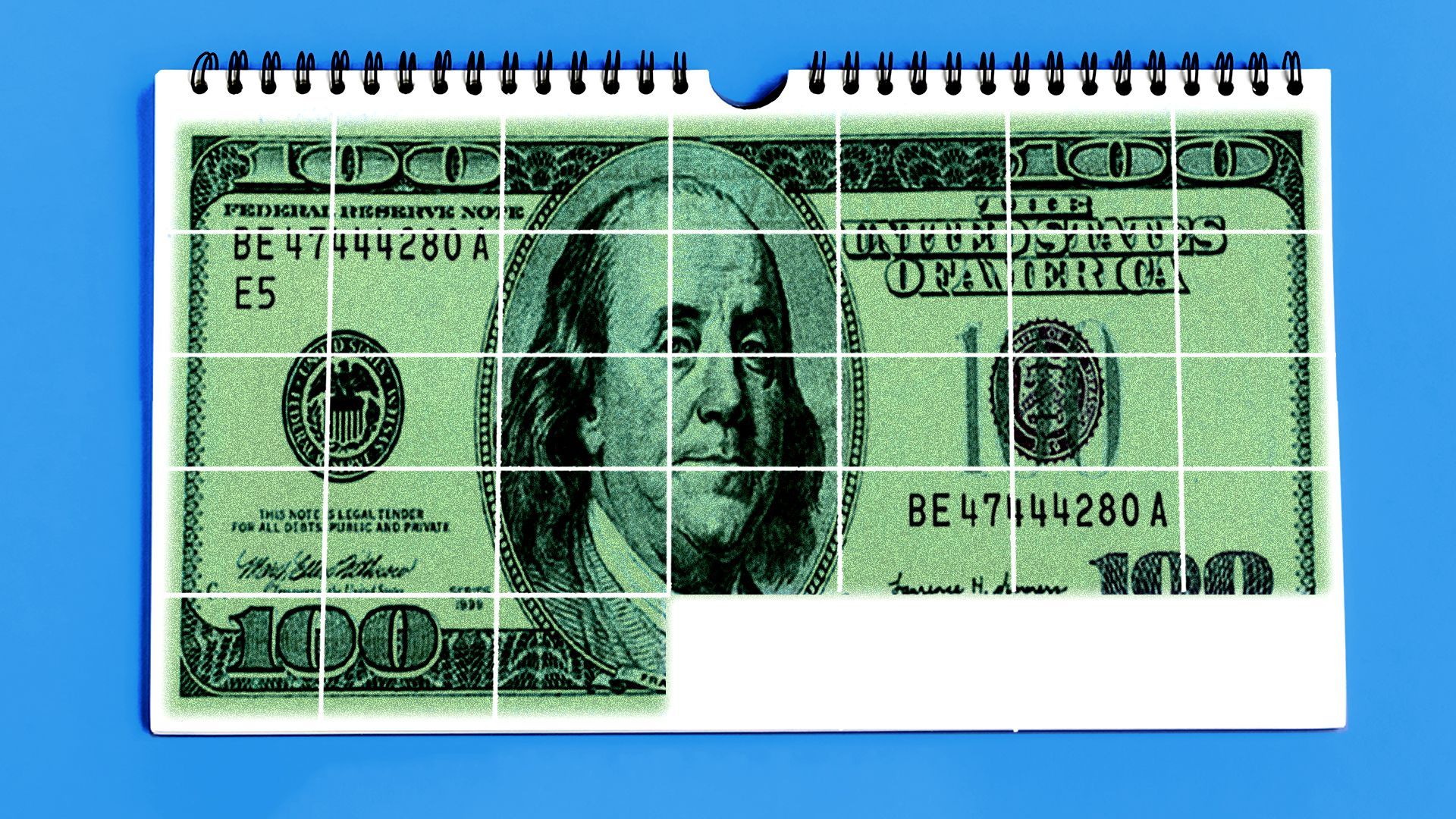Biden's tax plan goes back to the future
Add Axios as your preferred source to
see more of our stories on Google.

Illustration: Annelise Capossela/Axios
President Biden has been clear that he wants to raise taxes on capital gains for high earners. But, until a Wall Street Journal scoop published Thursday night, it wasn't known that he wants those taxes raised retroactively.
Why it matters: It's unscrupulous.
- This isn't a judgment on the merits or demerits of raising top capital gains rates, either to Biden's preferred 39.6% (plus an ACA surcharge) or closer to the 30% rate than many Democrats prefer. It's a judgment on changing the rules after the game has been played.
Per WSJ: "Biden's expected $6 trillion budget assumes that his proposed capital-gains tax rate increase took effect in late April, meaning that it would already be too late for high-income investors to realize gains at the lower tax rates if Congress agrees, according to two people familiar with the proposal."
- This is different than what White House economic adviser Heather Boushey told me last month on Axios Re:Cap, when asked about retroactivity.
The White House argument is likely to be that retroactivity will prevent investors from taking advantage of the period between Biden's original announcement and ultimate bill passage.
- But this ignores that Biden's announcement was just a starting point for negotiations, and was more press release than bill.
- And, again, the White House chose not to say at the time that the taxes would be retroactive, leading reasonable investors to make decisions under the assumption that any hikes would take effect either once legislation is signed, or perhaps at the beginning of 2022.
The bottom line: It's laudable that the administration wants its math to work, as part of the most ambitious infrastructure and social spending plan of our lifetimes. But it shouldn't use unfair means to ensure the rich pay their fair share.
